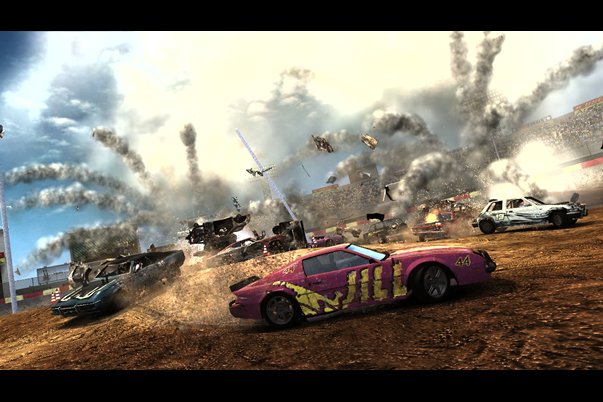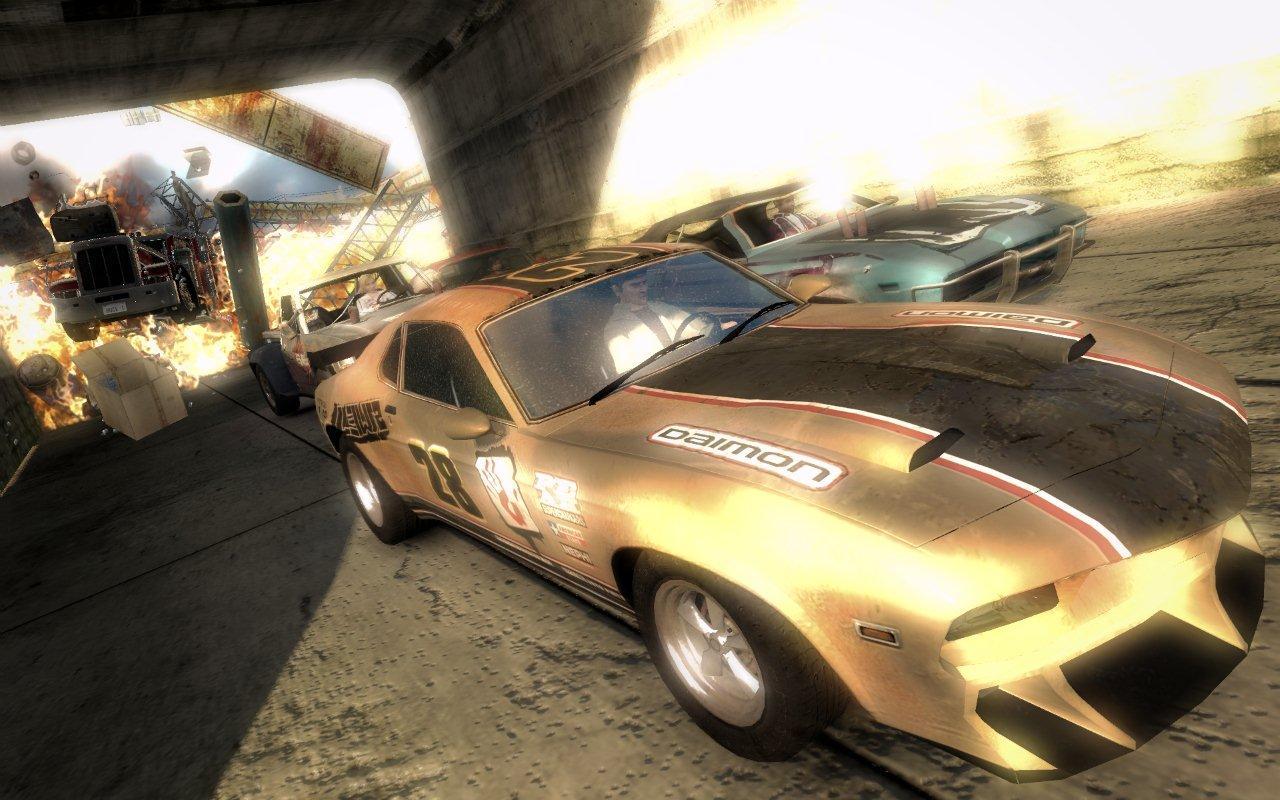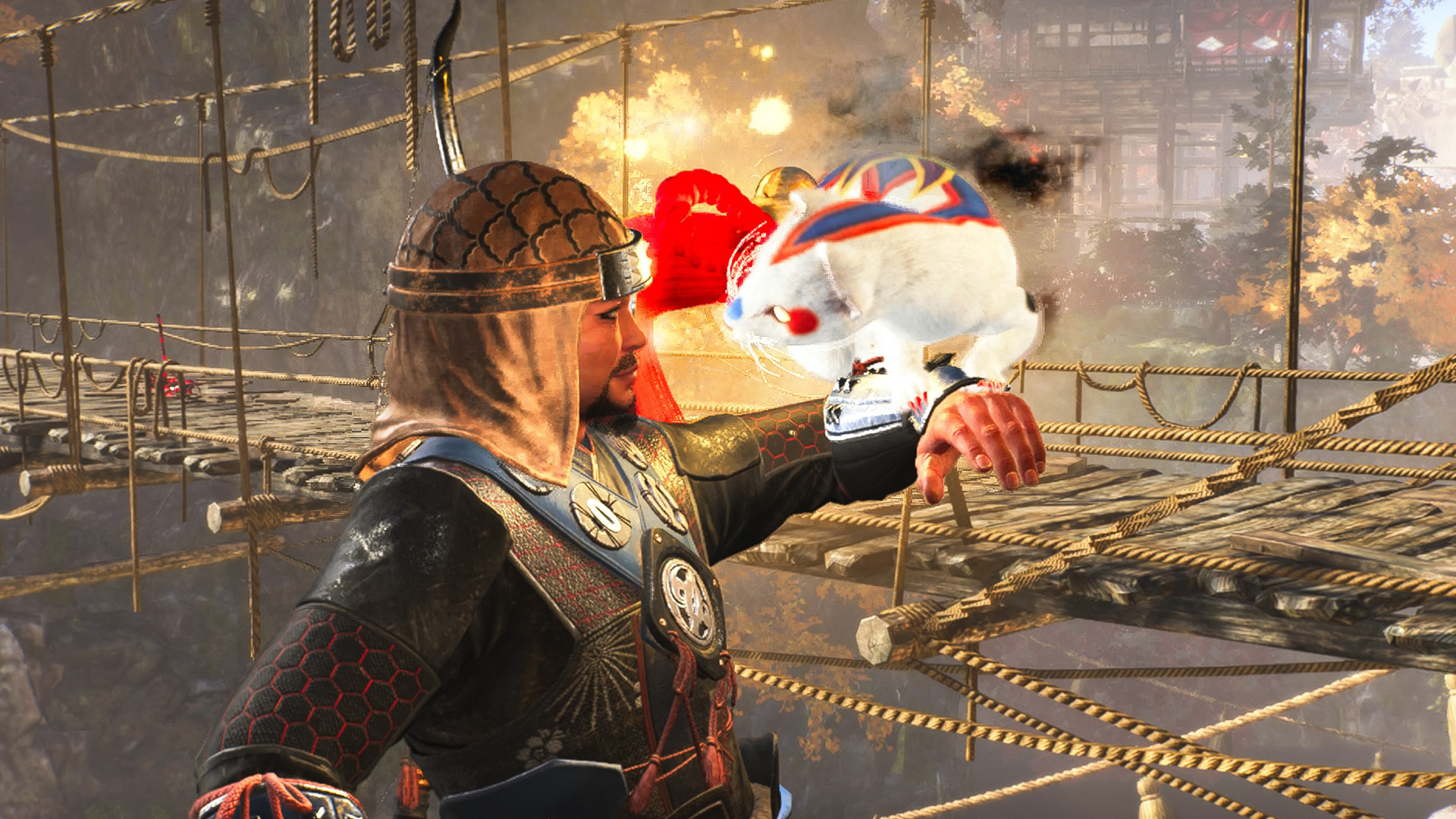Why you can trust GamesRadar+
Of course, you can turn the tables on them completely and smashing into your opponents will also give you a burst of nitrous. Unfortunately, the reward system here is woefully unbalanced. In Burnout, executing takedowns is calculated, a skill-rewarding mechanism. In the physics-powered world of FlatOut, such tightly defined maneuvers would obviously stick out. But some sort of concession to skilful takedowns should have been made. Pulling off a successful "crash" is rarely worth the risk. Turning a car entirely around and dropping him down a number of places won't earn you anything, and smashing into a car hard is just as likely to knacker up your own progress as your opponents,' since it's rare that the nitrous awarded to you will compensate for your loss of speed. It's really infuriating.
They've nailed a lot of this game but failed at this fundamental and annoying hurdle. Consequently, during "normal" racing events you might want to take out an enemy for kicks - but you certainly won't do it in the hope of a rewarding advantage since you'll always run the risk of losing more than you'll gain. And at the end of the day, progression is about winning.

A bit of a fundamental, ruining flaw for this sort of game then. And the other problem with Bugbear's commitment to its physics system is that, like in previous Flatout efforts, there's a seeming lack of consistency when it comes to the effect that debris has on your car. Some you'll power through, then something seemingly small and insignificant can throw you out of your stride. Maybe it is powered by a mathematically sound algorithm, but it's difficult to pick your way around things when you're doing over a ton. It's a problem that's plagued the series, and while it may be less prominent than before, it's still bloody annoying that you could be flipped out at any time.
So those are our major gripes. Yet in spite of these fundamental and infuriating problems, FlatOut is a game that gives and gives. There are three classes of racers (bangers, street and racers) to be mastered over each environment, and there are a ton of different events. There are all the stunt events and also Deathmatch Derby (an inspired, riotous jamboree enhanced by the inclusion of power-ups), Beat the Bomb and Time Trial races (both variations on racing against the clock) and Carnage races. And it's in the Carnage races that FlatOut is shown at its finest. Points matter here - you'll get a multiplier for being further up the pack but it's the points that matter, which you earn from, well, causing the carnage. Here the nitrous is dished out more liberally, meaning that you'll fly through at near supersonic speeds, struggling to hang on to control whilst you're absolutely loving the chaos unfolding around you. And thanks to the speed at which you race, crashing into other cars doesn't cause the same sort of problems it does in the normal races.
Weekly digests, tales from the communities you love, and more
More info
| Genre | Racing |
| Description | FlatOut's over-the-top destructive racing is hugely addictive and heavily replayable. It's a little wonky at times but nothing you can't handle. |
| Franchise name | FlatOut |
| UK franchise name | FlatOut |
| Platform | "PC","Xbox 360" |
| US censor rating | "Teen","Teen" |
| UK censor rating | "","" |
| Release date | 1 January 1970 (US), 1 January 1970 (UK) |



